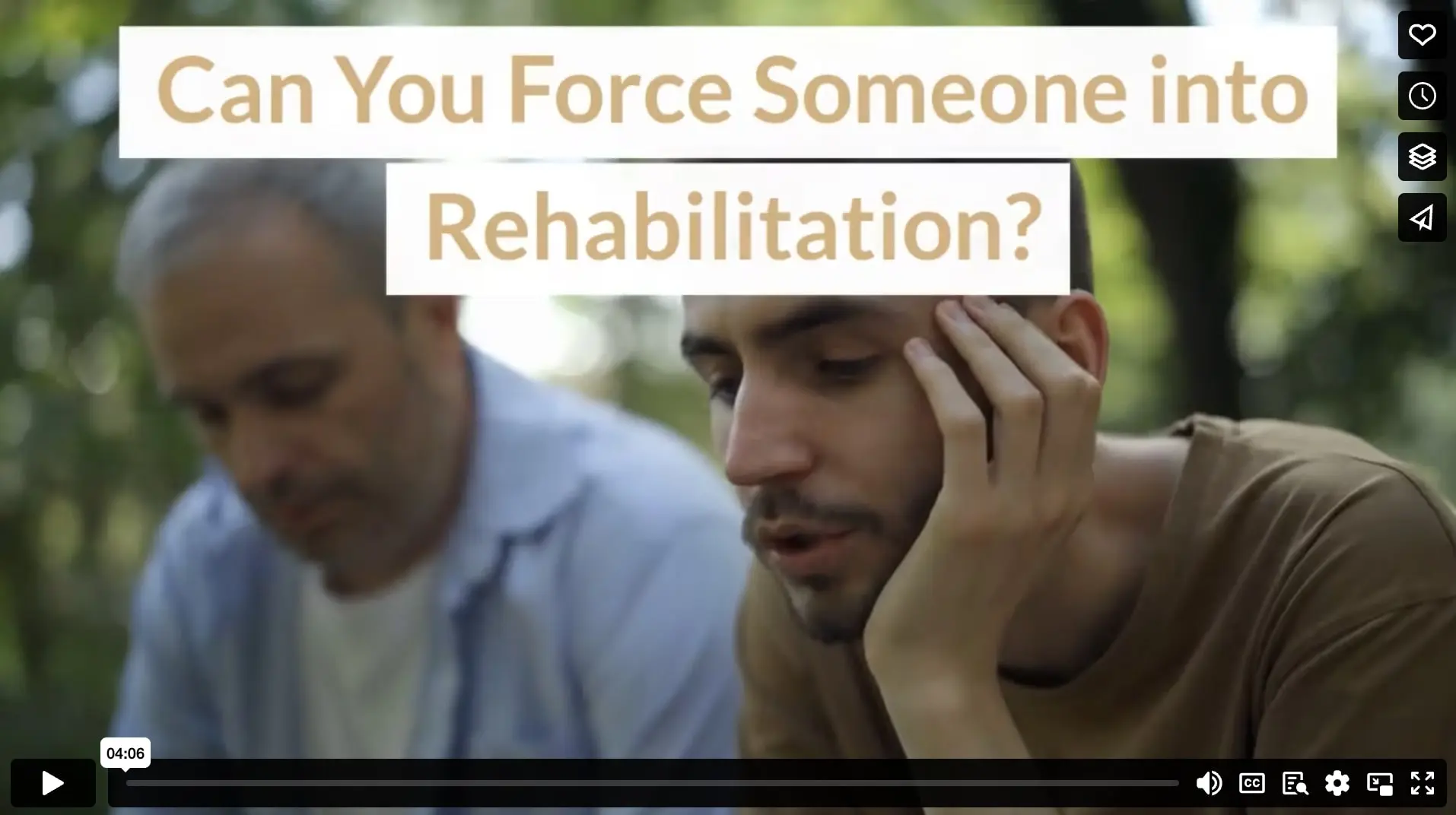It can be heartbreaking to see a loved one spiral out of control with drug and alcohol use. Substance use can cause the user to damage relationships with those closest to them, lose careers, endanger their children, and sacrifice all that was once dear to them. They may lie, steal, cheat, or hurt others in their desperation for their next fix. And as a family member, you have little control. It makes you feel helpless and hopeless and desperate for help.
You may find yourself wondering if forced rehabilitation services are an option. You want it to stop. You want to speak to your loved one and see the person they were before substances distorted their personalities and value systems. If they could stay clean long enough to see what drugs and alcohol were really doing to them, they would see the light. They’d have a change of heart and dive into the recovery process with determination to succeed.

(freepik/Freepik)
But what about the saying that an addict needs to want help before rehab will work? Are there steps to take before we get to forced rehab? Are there times when forced rehab is the right choice?
What is Forced Rehab?
Rehabilitation is an inpatient or outpatient program at an addiction recovery center that helps people safely detox from drugs or alcohol before training them on how to break the addiction and learn healthier coping mechanisms. Forced rehab is a term for forcing a patient into treatment when they refuse to go on their own. In most states, it’s a violation of the user’s civil liberties to force them into rehab unless they meet certain criteria.
There are three common scenarios in which forced inpatient programs are accepted in most US states.
-
- The User Is a Minor: If you are the parent of a teen addict, you may be at your wit’s end. Even the best parents can have a child that goes off the rails. Teens can be secretive, and you may not even know the catalyst of their substance use. Are they dealing with trauma you know nothing about? Are they self-medicating the onset of mental disorders, or were they pressured into using by their peers?
As a parent, you may not know the why, but you see the effects of drug and alcohol consumption every day. Fortunately, most states agree that parents have the right to get their children into an inpatient facility for treatment. You have a chance to help your child heal before they go off on their own. - The User Is a Danger to Themselves or Others: Whether the user has a mental illness or their drug of choice causes violent or suicidal behavior, you have the right to protect them, yourself, and the people around you. You can request that the user be forcibly admitted.
Were they in a single-car accident bad enough that you fear they could kill themselves or someone else if they drive under the influence again? Are they threatening to hurt you or others? Have they expressed suicidal ideation, or have they attempted suicide? These and similar scenarios are why most states will allow forced rehab. They cannot knowingly allow anyone to harm themselves or another person.If you believe your loved one could harm themselves, talk to their doctor or call the authorities to arrange a 72-hour hold and evaluation. - The User Can Escape a Worse Fate Through Rehab: If the user is a first offender, judges may send the user to a recovery center rather than hand out a prison sentence. Their decision will depend largely on why the user ended up in the courts to begin with.
A DUI accident that didn’t result in major injuries may be looked upon as a cry for help. If, however, the user committed a violent crime to obtain money for drugs and alcohol, got into a bar fight in which someone died, or committed other violent acts, the judge has a bigger decision to make. If your loved one is lucky enough to get an offer of substance abuse rehab instead of jail, they have a choice. Most would rather go to rehab and avoid prison.
- The User Is a Minor: If you are the parent of a teen addict, you may be at your wit’s end. Even the best parents can have a child that goes off the rails. Teens can be secretive, and you may not even know the catalyst of their substance use. Are they dealing with trauma you know nothing about? Are they self-medicating the onset of mental disorders, or were they pressured into using by their peers?
If your loved one doesn’t fall into one of those three categories, you will need to check with your state laws to see if forced rehab is even an option.
First Steps
It is always best if users choose to go into drug rehab voluntarily. While forcing users into a program sometimes leads to recovery, other patients resist the process all the way through and relapse the day of their release.
If you find yourself in a difficult situation with a loved one who needs help but is actively refusing it, consider hiring an intervention coach. These specialized coaches may be able to persuade your loved one to go willingly to rehab.
Once your loved one is admitted to a drug and alcohol detox and treatment center, forced or voluntarily, consider starting family counseling. This can help you react well to any hard feelings your loved one may have about being sent to a rehab facility (if they went against their will). Counseling can also help you know how to support your family member when they exit the program for long-term sobriety.
Video
Infographic
Forced rehab involves compelling a patient into treatment against their will, which is generally a violation of civil liberties unless certain criteria are met. Learn about the three common scenarios in which forced inpatient programs are accepted in most US states in this infographic.


